Analysis: How presidential hopefuls outlined economic blueprints in final runoff debate
By Alireza Akbari
The two contenders running for Iran's presidency squared off in the second and final debate on Tuesday, aiming to woo voters ahead of the much-anticipated Friday vote.
The second debate centered primarily on the economic blueprints of candidates Masoud Pezeshkian and Saeed Jalili. The first one focused on political and cultural issues.
Following the tragic passing of President Ebrahim Raeisi in a chopper crash in May, the snap presidential election was promptly scheduled within a 50-day timeframe.
The vote was held on June 28 with four candidates in the fray, out of which Pezeshkian, a veteran parliamentarian and former health minister, and Saeed Jalili, former lead nuclear negotiator and head of the Supreme National Security Council, secured the most number of votes but fell short of an absolute majority, paving way for a runoff.
The second debate centered on the economic blueprints put forth by the two candidates during their campaign trails.
The first key area of discussion revolved around how they planned to address the lingering issue of sanctions and navigate a course toward the lifting of sanctions.
Pezeshkian stressed his commitment to abiding by Iran's legal framework and the policies defined by the Leader of the Islamic Revolution, Ayatollah Seyyed Ali Khamenei.
He highlighted the importance of collaboration, consultation with relevant entities, and the necessity of building consensus to achieve common goals.
Proposing a strategy grounded in diplomatic efforts and strategic partnerships at both regional and global levels, the lawmaker from the northwestern city of Tabriz called for a comprehensive approach that integrates expert opinions, public participation, and cooperative initiatives to foster economic growth.
At the core of his economic agenda are principles of justice, international engagement, merit-based systems, and a drive to maintain economic stability while promoting entrepreneurial ventures and curbing excessive governmental meddling.
Jalili, for his part, emphasized Iran's abundant resources and extensive international ties as strengths to capitalize on in the face of Western sanctions.
Advocating for a proactive approach in countering sanctions, Jalili argued that measures taken to confront such challenges could lead to positive economic outcomes.
He stressed the importance of safeguarding Iran's interests within international agreements like the Joint Comprehensive Plan of Action (JCPOA) and the Financial Action Task Force (FATF).
Furthermore, the veteran diplomat and negotiator highlighted the significance of leveraging Iran's strengths and maintaining a robust stance against external pressures.
The second question of the debate focused on energy consumption and the pressing need to address imbalances in this critical sector.
Pezeshkian highlighted the issue of energy wastage in the country, advocating for a more efficient allocation of subsidies based on expert opinions and public feedback.
He emphasized the importance of directing subsidies towards the underprivileged segments of society, promoting a fair and equitable distribution system.
Jalili echoed the call for expert-guided strategies in managing energy subsidies, emphasizing the need to eradicate injustices in this domain.
He underscored the significance of public participation in shaping subsidy distribution policies, stressing the importance of effective management and entrusting the populace with a role in curbing energy consumption imbalances.
Masoud Pezeshkian, a candidate in Iran's presidential election, urges the entire Iranian nation to participate in the run-off.@drpezeshkian#IranVotes2024 pic.twitter.com/f8CY0ebhZN
— Iran Election 2024 (@PressTVElection) July 2, 2024
Transitioning to the realm of the stock market, both candidates faced queries on their blueprints and approaches to manage this critical economic sector.
Pezeshkian advocated for a collaborative approach, suggesting that a team of economists should convene to devise solutions and present comprehensive plans.
He advocated for minimal government intervention in stock market pricing, emphasizing the need for a hands-off policy to ensure stability in the stock market.
Jalili also positioned the stock market as a key driver of the country's economic growth, advocating for transparency and stability.
The discussion then pivoted towards subsidy distribution, with Pezeshkian emphasizing the government's responsibility to support the less fortunate under the laws of the Islamic Republic.
He pledged to prevent the suffering of the deprived class and stressed the importance of evaluating the current subsidy system before making any adjustments.
Jalili presented a range of proposals aimed at providing subsidies to the Iranian population, focusing on support in cultural initiatives, travel opportunities, and providing essential goods for families.
In the context of housing policies, Pezeshkian reiterated his commitment to upholding the country's laws, particularly in the area of housing regulations.
He outlined plans to align salary increases with inflation rates to facilitate affordable housing for people, while also emphasizing the importance of rural development to alleviate urban overcrowding.
Jalili proposed a unique approach, suggesting the construction of one house per marriage to address housing shortages, emphasizing the role of government facilitation in providing housing solutions.
Saeed Jalili, a candidate in Iran's presidential election, emphasizes the support and votes of the entire Iranian nation.@DrSaeedJalili#IranVotes2024 pic.twitter.com/i6LSCG7YT9
— Iran Election 2024 (@PressTVElection) July 3, 2024
The discussion further delved into strategies for curbing inflation, with Pezeshkian highlighting the role of exports in mitigating inflationary pressures.
He emphasized the importance of addressing energy imbalances and implementing effective management practices to combat inflation.
Jalili, for his part, attributed inflation to budget imbalances and proposed solutions centered on financial discipline, reducing the government's unnecessary expenditures, and channeling currency towards productive sectors.
He advocated for transparency and currency stability to combat the scourge of inflation and foster economic stability.
The import of cars emerged as the next key topic of the debate last night, with both candidates expressing support for it, albeit with differing plans and approaches.
Pezeshkian advocated for freeing the import of cars to foster competition with domestic car manufacturing companies.
On the other hand, Jalili emphasized the need to boost local car production, suggesting that importing cars could partly contribute to this goal.
He also highlighted the importance of resuming the export of domestically made cars to allied nations.
The issue pertaining to retirees also figured in the last debate, where Pezeshkian outlined his administration's plans to provide free healthcare for retirees, increase their salaries in line with the prevailing inflation rate, and offer facilities tailored to their needs.
Jalili acknowledged the vital role of retirees, referring to them as "pillars" of families. He stressed the importance of adjusting retirees' salaries to match inflation and emphasized the government's responsibility to settle its debts to the pension fund.
In their closing statements, Pezeshkian pledged to prioritize the expectations of people if elected, and Jalili urged Iranian citizens to view the Friday run-off election as an opportunity for each individual to play a role in shaping the nation's future.
The second and final debate of the runoff election had many heated moments as the two candidates passionately argued on several issues of public importance while sticking to the ethical framework.
VIDEO | US attack on Iran & world economy
Azerbaijan president meets top Israeli lobby group leadership during visit to US
Israeli settlers kill 19-year-old Palestinian man in West Bank raid
Israel installed, managed security system at Barak-Epstein New York flat: Report
Iran deplores Israel’s new land grab scheme in West Bank
VIDEO | Vienna holds conference dubbed 'Iranian-Islamic Civilization, Identity and Historical Splendor'
VIDEO | Press TV's news headlines
Journalist Tucker Carlson says he was detained in occupied territories after interview with US amb.


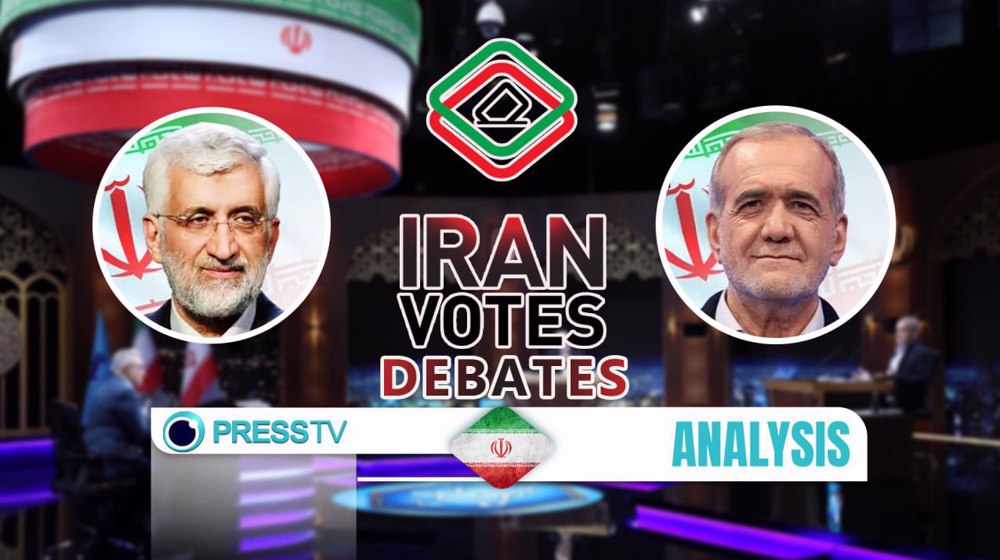
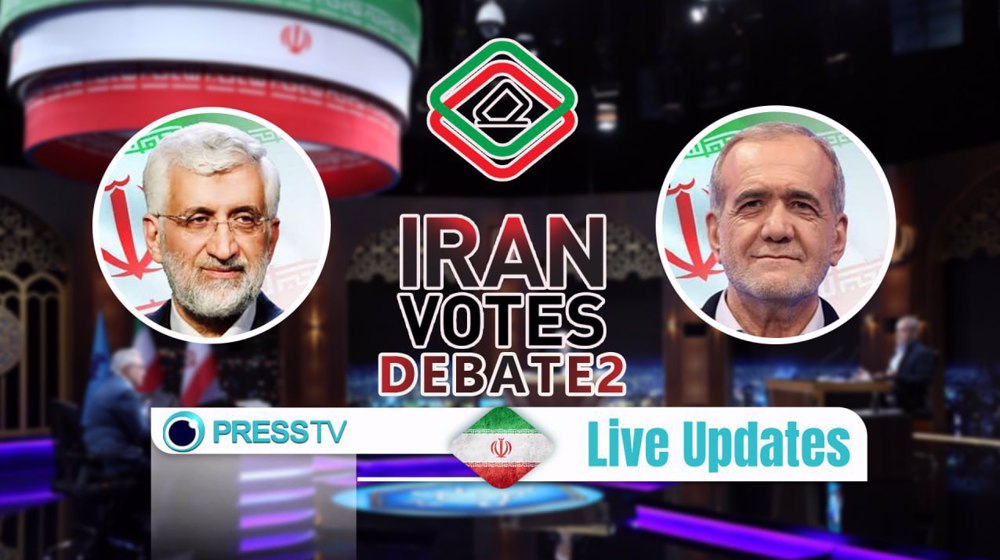
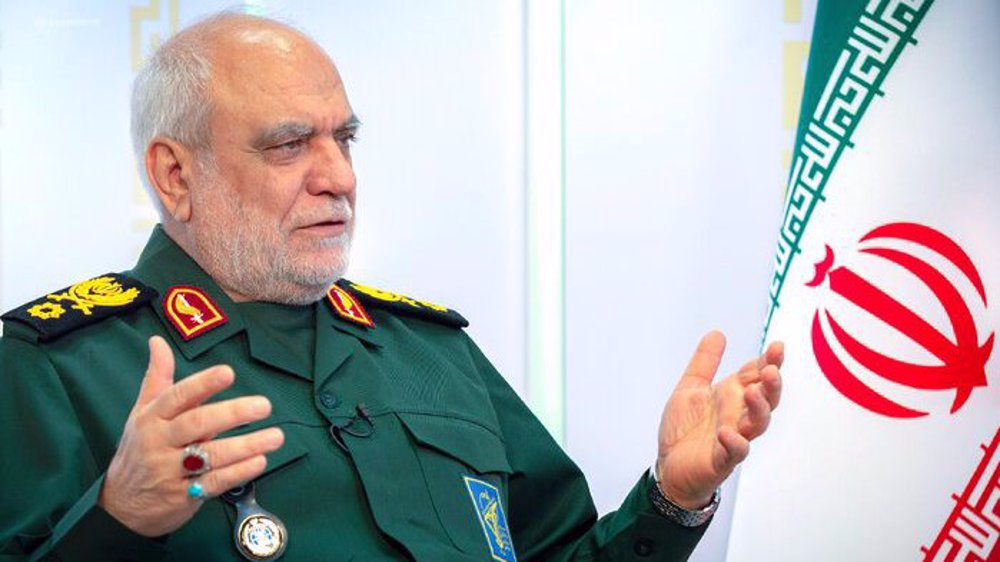
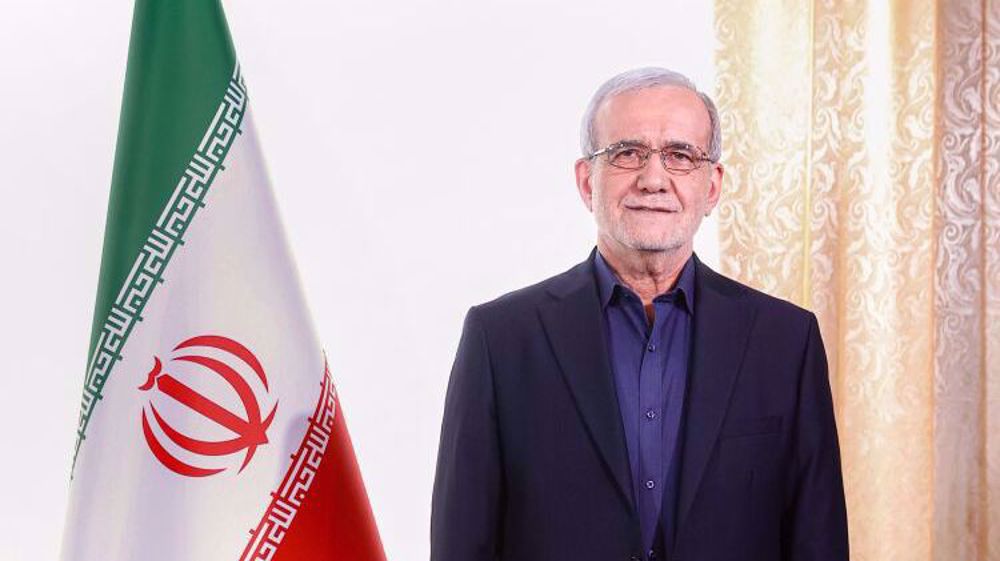
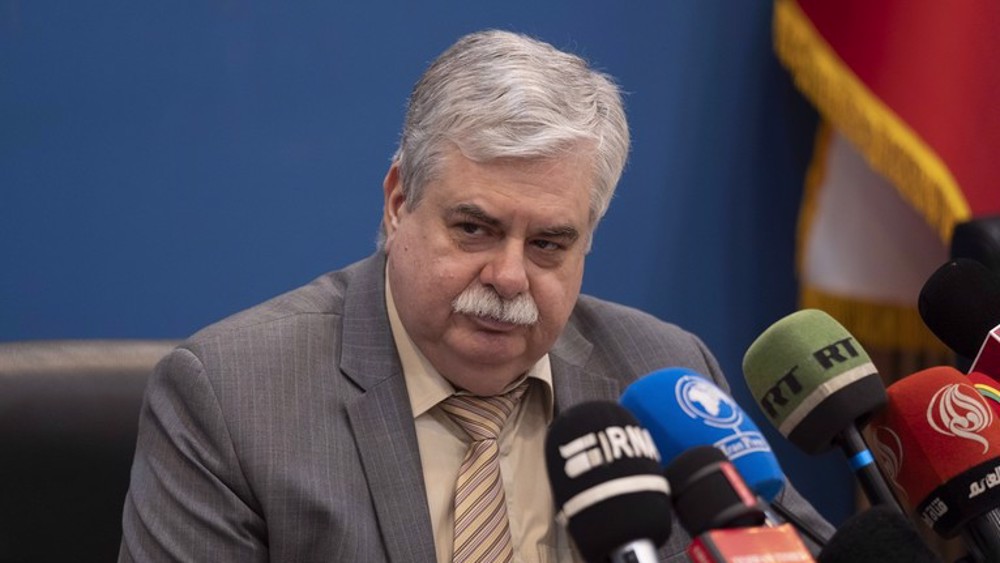



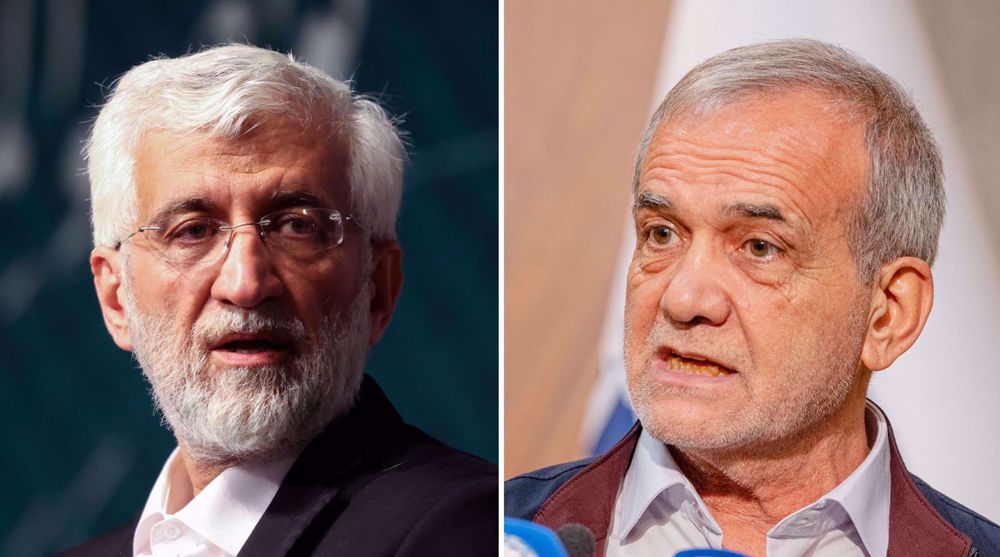
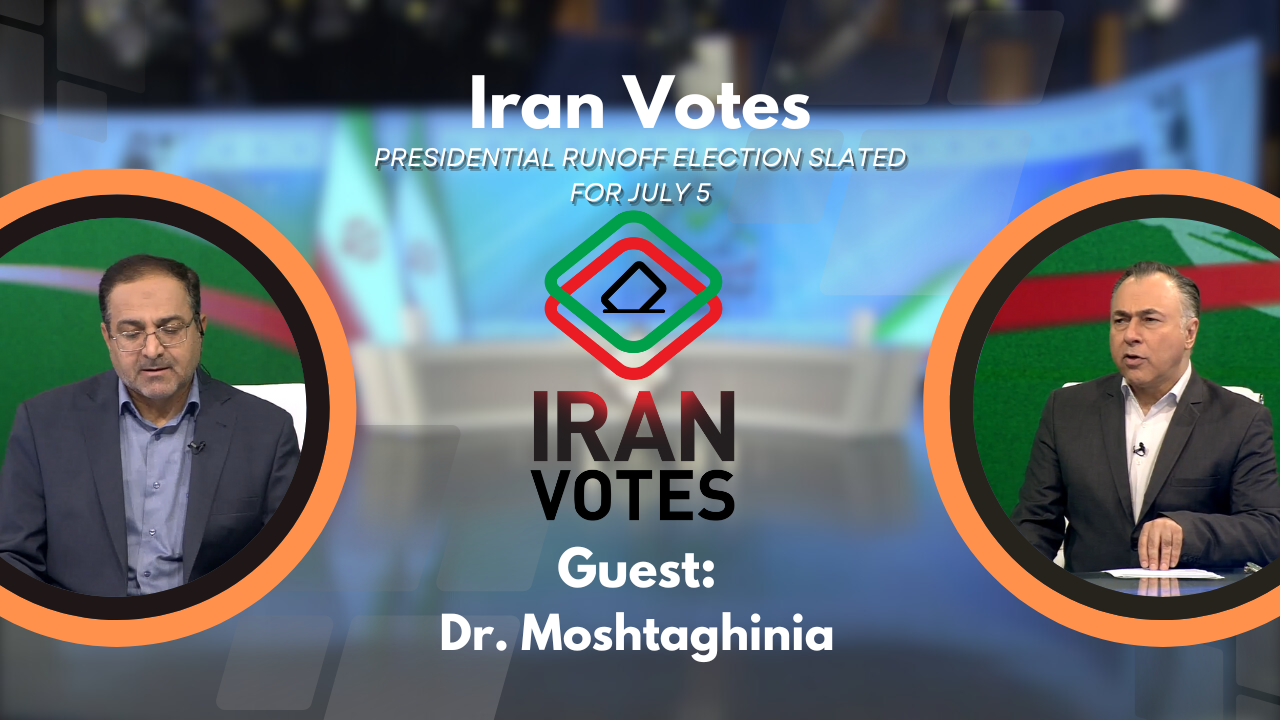
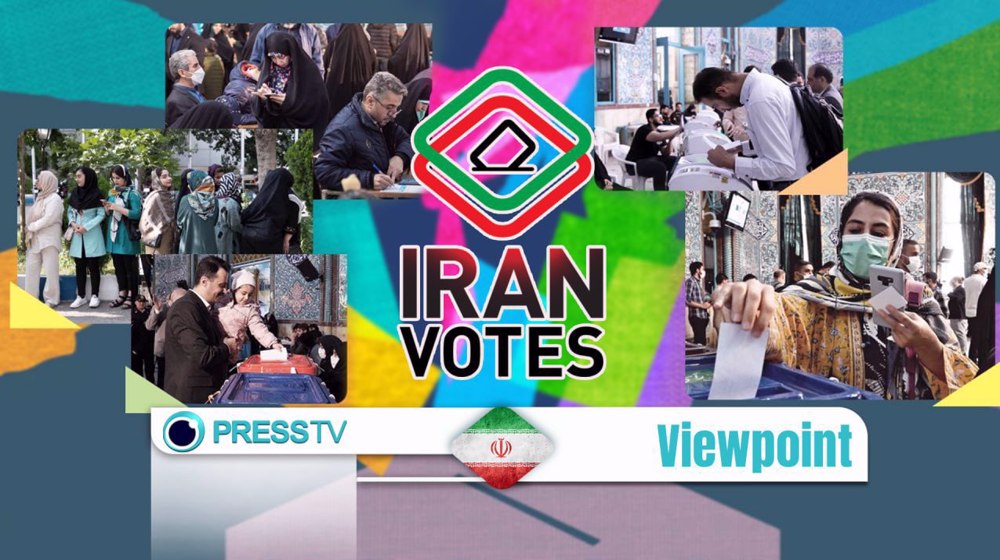
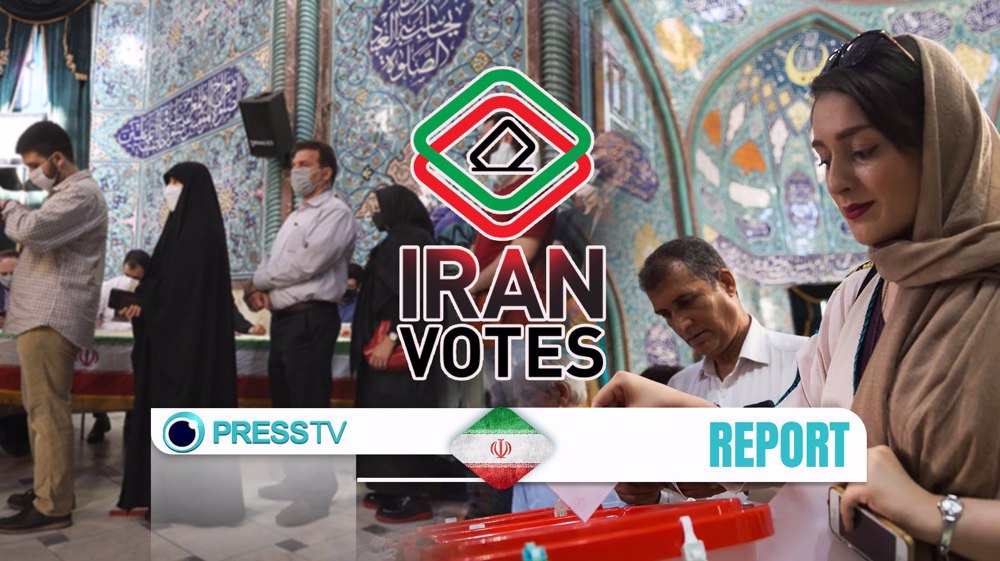

 This makes it easy to access the Press TV website
This makes it easy to access the Press TV website